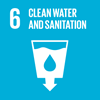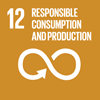Development of manufacturing methods with low environmental impact
Focus SDGs
Management information
Relation between themes and business activities
The Fuji Oil Group uses chemical substances and organic solvents in the manufacturing of some products. The use of these materials does not threaten the safety or quality of the products. However, they are associated to environmental impacts like water requirements for their treatment or the emissions of CO2. We need to identify the environmental impact in the manufacturing process and reduce it as much as possible. We are also aware that the use of organic solvents may lead to occupational safety and health accidents. A manufacturing method that does not use organic solvents can contribute not only to the reduction of environmental impact but also to the safety of employees.
Basic approach
To achieve the targets for CO2 emissions reduction, water usage reduction, and waste reduction set in the Environmental Vision 2030, we will promote technological innovation, aiming to establish processing technologies that do not use chemicals and organic solvent treatment with high environmental impact.
Promotion system
We promote our initiatives to develop manufacturing methods with low environmental impact under the supervision of the Chief Technology Officer (CTO). Moreover, the ESG Committee*, which is an advisory body to the Board of Directors, confirms the progress and results of these initiatives as a priority theme for ESG management.
* Refer to the URL below for details of the ESG Committee.
https://www.fujioilholdings.com/en/csr/approach/
Objectives / Results
FY 2019 objectives
- Development of oils and fats, and protein processing technologies that do not use chemical catalysts and organic solvents
FY 2019 results
We worked on the development of oils and fats processing technologies that use enzyme catalysts with low environmental impact, instead of chemical catalysts, and succeeded in establishing a new manufacturing method at the laboratory level. If this manufacturing method can be put to practical use, it is expected to reduce CO2 emissions by 0.12 tons per one ton of oils and fats products, compared to the oils and fats processing method that uses chemical catalysts. However, there are still issues, such as scale up and cost reduction, to achieve the practical use of this manufacturing method.
Next Step
The Fuji Oil Group will continue to develop manufacturing methods with low environmental impact for example eliminating the use of chemicals and organic solvent treatment. Aiming to develop processing technologies that contribute to the Environmental Vision 2030*, we will continue to promote the development of technologies for processing oils and fats without using chemical catalysts and organic solvents. Regarding the manufacturing of soy protein isolate products*2, which causes the emission of an exceptionally large amount of CO2 in the Fuji Oil Group’s businesses, we plan to develop technologies that significantly reduce CO2 emissions.
* Refer to the URL below for details of the Environmental Vision 2030.
https://www.fujioilholdings.com/en/csr/environment/management/
*2 Soybean protein isolate: Soybean protein isolate is used in various nutritional healthy foods as an excellent protein source with an amino acid score (an index that expresses the nutritional value of protein; the closer to 100, the better) of 100. It is also widely used as a functional food ingredient for improving the quality of processed meat products and processed marine products, taking advantage of its excellent gelling power, emulsifying power, and water retention power.

